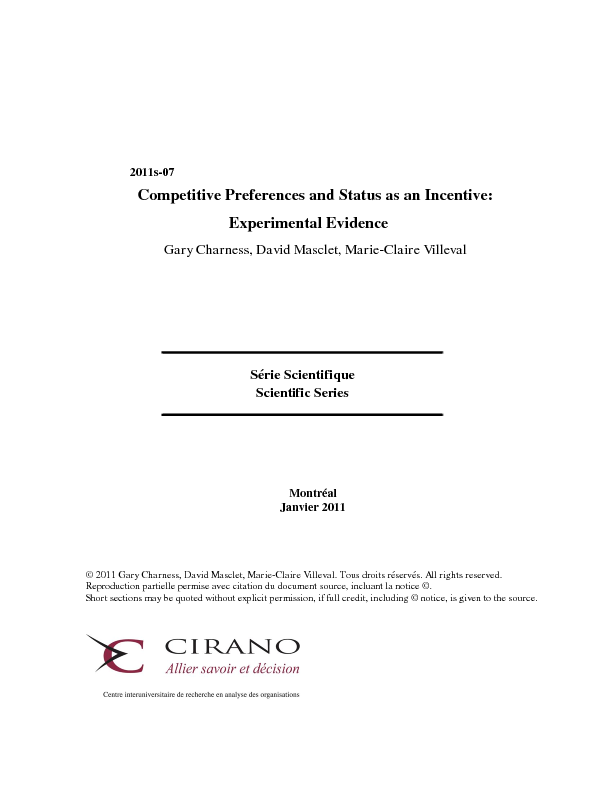Competitive Preferences and Status as an Incentive: Experimental Evidence
In this paper, we investigate individuals' investment in status in an environment where no monetary return can possibly be derived from reaching a better relative position. We use a real-effort experiment in which we permit individuals to learn and potentially improve their relative position in terms of performance. We find that people express a taste for status. People increase their effort when they are informed about their relative performance, and some individuals pay to sabotage others' output or to artificially increase their own performance although they are paid a flat wage. Introducing the opportunity to sabotage others' output exerts a negative effect on performance. Such effects can be alleviated by inducing group identity that favors positive rivalry but discourages sabotage among peers.
[ - ]




